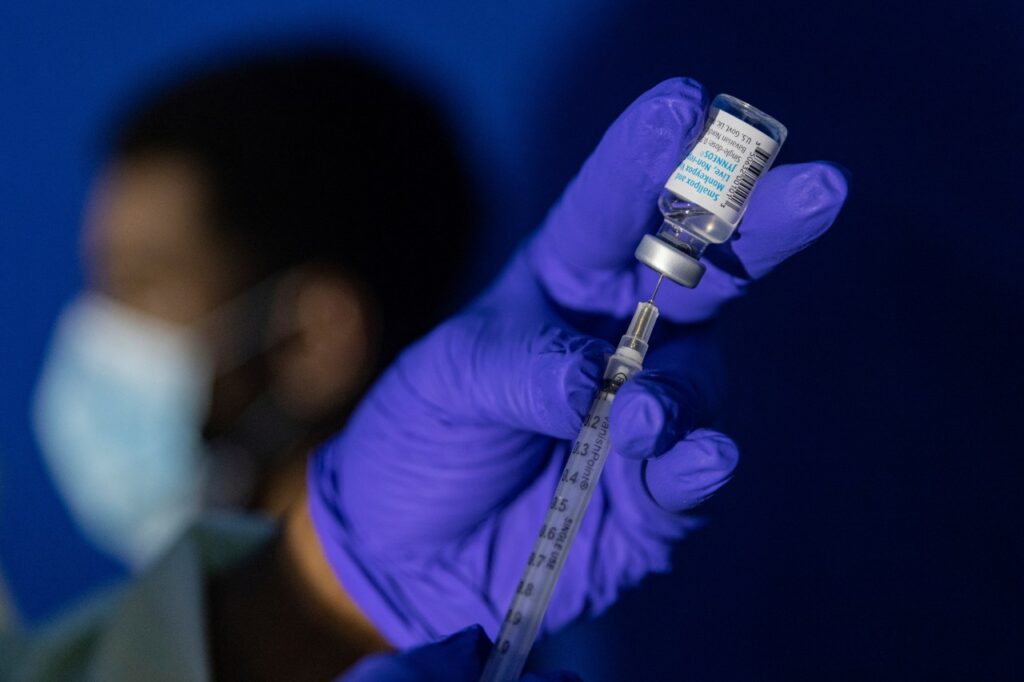The Government Accountability Office (GAO) said in a new report that the Department of Health and Human Services' (HHS) response to the 2022 MPOX outbreak was uncoordinated and lacked interagency coordination.
For the report, GAO visited 14 jurisdictions in the United States, including Los Angeles, Miami-Dade County, Atlanta, Chicago, and New York City. The agency also interviewed nongovernmental officials and reviewed the actions HHS took in response to his previous GAO recommendations.
The audit was conducted from October 2022 to this month.
As GAO noted, the response to mpox was conducted through numerous agencies within HHS, including the Office of Strategic Preparedness and Response (ASPR), the Centers for Disease Control and Prevention (CDC), the Food and Drug Administration, and the National Institutes of Health. Ta. and Health Resources and Services Administration.
The response was accelerated by the declaration of a public health emergency, but officials in multiple jurisdictions said that in August, about three months after the first MPOX case in the U.S., “the central point of coordination remained until the White House team stood up.'' ” seems not to have occurred. An occurrence has been detected.
“For example, officials from some jurisdictions have discussed the challenges of working with CDC and ASPR, and both agencies routinely direct questions and requests from their jurisdictions to the other agency,” the GAO report said. “He said he was doing so.”
“Had there been greater coordination among all HHS agencies, HHS could have responded more quickly to questions and requests from jurisdictions.”
According to the report, HHS officials said ASPR served as a central coordinator for some of the government's responses to the mpox outbreak.
GAO identified other failures in HHS's response, including failing to effectively communicate the increased risk of infection to certain individuals, primarily men who have sex with men. Officials in one jurisdiction told GAO that this type of information could help prevent infection.
But officials seemed to acknowledge that the response actually improved after HHS incorporated community input. However, other challenges continued to arise in working with the federal government.
The supply of the Zinneos smallpox vaccine used to fight the epidemic was expanded by administering an intradermal injection at one-fifth the usual dose. While this increased availability, the COVID-19 pandemic did not provide the necessary supplies to administer these vaccinations, as some health officials had hoped.
Reporting data to the federal government also takes time, and officials say they often have to manually upload case report data.
GAO issued two recommendations in response to its review.
First, directs the Secretary of HHS to “develop a coordinated department-wide response program that fosters collaboration among HHS component agencies, including the integration of these component agencies' existing public health emergency response programs; “Implementation'' was recommended.
Second, the Bureau recommended that the Secretary develop a follow-up program that includes “stakeholders involved in each public health emergency response, including other federal agencies, jurisdictions, and nongovernmental partners.”
Asked for comment, an HHS spokesperson said the department “agrees with both recommendations and is working toward implementation.”
Democratic Reps. Bennie Thompson (Mississippi) and Ritchie Torres (New York), as well as former Rep. Val Demings (D-Fla.), requested the review from GAO in August 2022, and at the time, “This pace is concerning.” The federal government's response to monkeypox allowed the virus to spread for two months, and delays in testing and vaccine distribution hurt efforts to contain the virus. ”
In response to the report, Torres announced the introduction of the Coordinating Body Response Enhancement Act. If enacted, the HHS Secretary would be required to develop a follow-up program that fosters interagency collaboration and develop comprehensive, culturally sensitive risk assessment strategies.
“In the wake of the COVID-19 pandemic and the MPOX outbreak, it is time to fundamentally change the federal government's approach to public health. We cannot afford to bear the brunt of the health emergency and are desperately waiting for the government to take action,” Torres said in a statement.
—Updated at 6:25 p.m.
Copyright 2024 Nexstar Media Inc. All rights reserved. This material may not be published, broadcast, rewritten, or redistributed.


